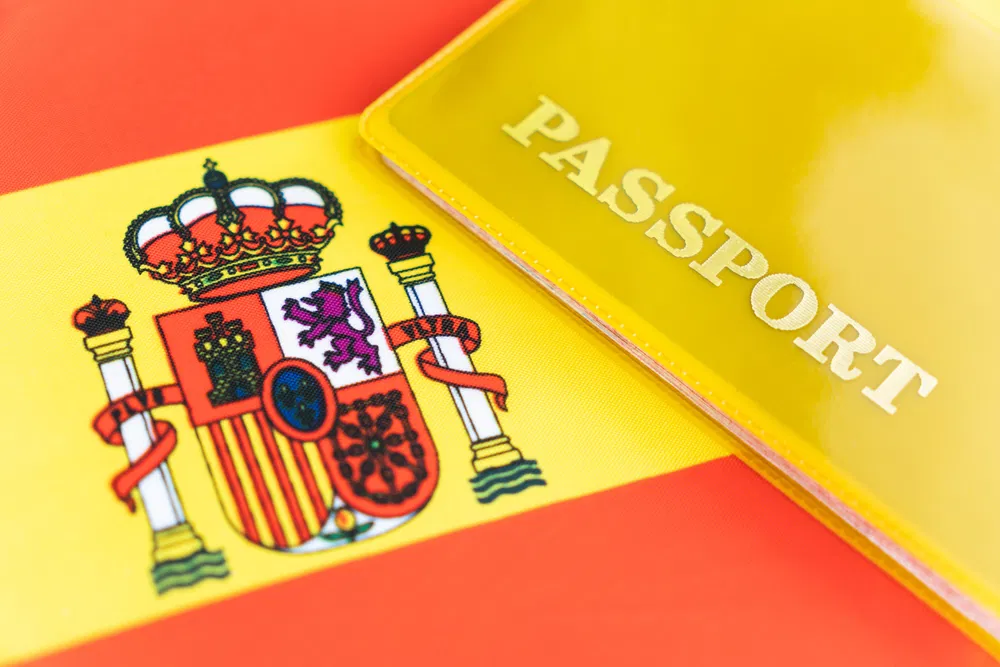Copyright euroweeklynews

If you’re planning to live, work, study, or invest in Spain, there’s one small but essential document you’ll need sooner or later — the NIE, or Número de Identidad de Extranjero. Whether you’re buying a property, signing a work contract, or simply setting up utilities, this personal identification number is the key to operating within Spain’s legal and administrative system. Applying for it can seem complicated at first, especially for newcomers navigating Spanish bureaucracy for the first time. But once you understand the process, it becomes a simple — if slightly procedural — rite of passage. Here’s what you need to know. What exactly is the NIE? The NIE (Número de Identidad de Extranjero) is a unique identification and tax number assigned to foreigners. It’s not a residence permit, but you’ll need it for virtually every official, legal, or financial activity in Spain. Think of it as the foreigner’s equivalent of the DNI (the national ID held by Spanish citizens). The NIE follows a simple format — one letter, seven digits, and a final letter — and it stays with you for life, even if your residency status changes. Without it, many everyday tasks become impossible. You’ll be asked for your NIE to open a bank account, register for utilities, pay taxes, buy or sell property, or sign any kind of contract. Even students enrolling in Spanish universities or retirees managing pensions need it. For this reason, many expats call the NIE “the key that unlocks life in Spain” — and they’re right. Who needs one? Almost everyone who plans to interact with Spain beyond a short holiday will eventually need an NIE. EU citizens require it for employment, contracts, and financial transactions. Non-EU nationals usually need it even earlier, as it’s often linked to their visa or residence permit. Even if you don’t plan to live in Spain full-time — for example, if you’re buying a second home or investing in property — you’ll still need an NIE to complete the purchase, pay property taxes, or handle legal paperwork. In short, if you intend to do business, study, or own assets in Spain, the NIE is essential. How to apply for an NIE in Spain You can apply in person in Spain or from abroad through a Spanish consulate. Both options are valid — the choice depends on your circumstances. Applying in Spain Applications are processed by the Policía Nacional (National Police) through the local Oficinas de Extranjería or main police stations, depending on the area. In big cities such as Madrid, Málaga, or Valencia, there are dedicated extranjería offices, while smaller towns often manage the process at their central police headquarters. Before you go, you’ll need to book an appointment via the official cita previa website — walk-ins aren’t usually accepted. Bring the following documents: Completed EX-15 form(application for the NIE) Completed Modelo 790-012 form(payment form for the small government fee, usually under €15) Your passport and photocopies Two passport-sized photos Proof of why you need the NIE(e.g., a job offer, property contract, or university enrolment) Proof of address in Spain (sometimes required) Once submitted, some offices issue your NIE certificate immediately, while others ask you to return after a few days to collect it. Applying from Abroad If you prefer to have your NIE before arriving, you can apply through a Spanish consulate or embassy in your home country. The process is similar — you’ll submit the same forms and documentation — but your application will be forwarded to Spain for approval. Processing usually takes between a few weeks and two months. This route is particularly convenient for property buyers or professionals relocating for work. Common Challenges The biggest challenge for most applicants is getting an appointment. In high-demand areas such as the Costa del Sol or Madrid, time slots disappear quickly. Persistence is key — check the booking site regularly and be ready to act fast when slots open. Other issues include incomplete paperwork, missing photocopies, or failing to pay the fee in advance. Having all your forms and proofs ready will save you time and avoid rejection. It’s also important to remember that the NIE is not the same as residency — it’s simply an identification number that allows you to participate in Spain’s administrative system. A real-life experience Beatrice, a French expat living in Cádiz, recalls how stressful it was to secure an appointment: “It took me weeks of refreshing the website before I got a slot. The day I finally had my appointment, everything went smoothly — and having that paper in my hand felt like I could finally start my new life here.” Her story echoes what many newcomers feel: patience pays off. A simpler way to get your NIE For anyone short on time or patience, there’s now an easier option. Buenaley, a respected law firm based in Málaga, specialises in obtaining NIEs for both residents and non-residents. The firm has already helped more than 500 clients secure their NIEs in under two weeks. The process is completely managed — clients simply verify their identity online and sign a short authorisation, and Buenaley handles the rest: forms, fees, and appointments. Whether you’re in Spain or still abroad, the firm ensures you receive your NIE quickly and securely — without battling long queues or confusing paperwork. Final Thoughts For those who want to avoid Spain’s long waits and administrative bottlenecks, Buenaley offers a fast and fully managed alternative to get the Spanish NIE. Buenaley is a Spanish law firm based in Malaga that has helped more than 500 clients obtain their NIE in less than two weeks. The process is entirely hassle-free: clients simply verify their identity and sign an authorization online, and the firm handles the rest. Whether you are in Spain or abroad, Buenaley manages every step of the procedure (forms, fees, appointments) so you receive your NIE quickly and securely without navigating the bureaucracy yourself.



